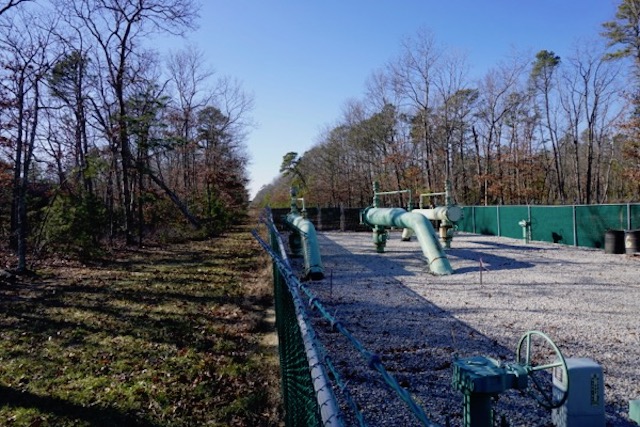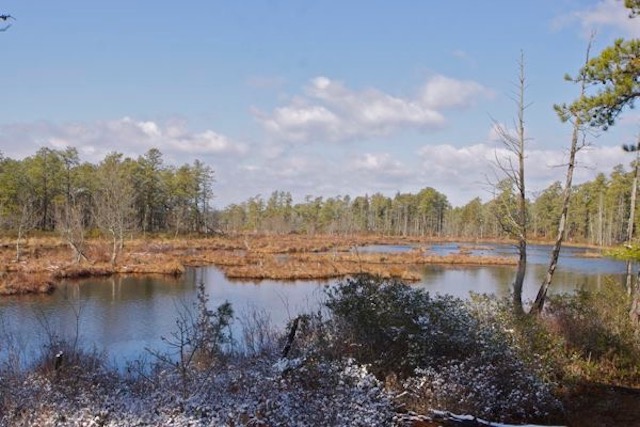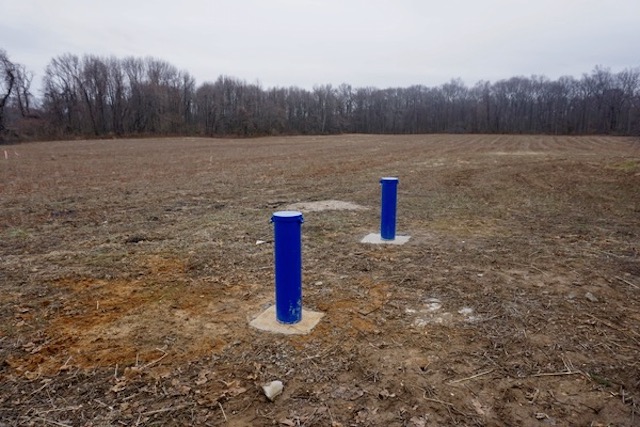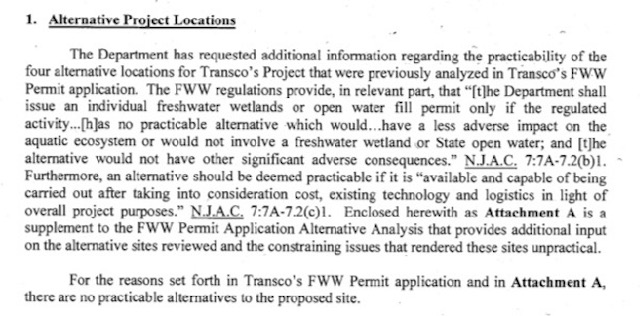Pines Abuse: Despite Bare Bones Budget And 22 Vacant Professional Positions, The Pinelands Commission Has No Idea If Gas Companies Are Paying The Full Costs Of Oversight
No progress on climate change or Ecological limits on water use
Corporate pipeline companies subsidized
Gov. Christie’s Office still blocking reforms
[Update below – 2/10/17 meeting rescheduled!]
The Pinelands Commission’s Personnel and Budget Committee met briefly this morning (see this for agenda and information). Note that the agenda also included a briefing on “application fees update”.
So I thought it was a good opportunity to talk about staff shortfalls, management problems, and lack of adequate budget/resources, particularly as they relate to:
1) a severe staff shortfall (22 vacant, un-budgeted positions); and
2) extensive delays in vitally important work that’s not getting done, like climate change and amendments to the Comprehensive Management Plan to implement the Commission’s Kirkwood-Cohansey study.
The Pinelands Commission has been bogged down in controversial pipeline debates for almost 4 years now. During that time, they have invested considerable staff time in reviewing pipeline applications and responding to public concerns.
During that four year period, crucial work is not getting done, including these priorities I suggested that they focus on last year:
1. Rescind delegation of power to the Executive Director to make unilateral decisions on major issues
2. Impose a moratorium on review of fossil infrastructure until a climate & energy policy is adopted in the CMP
3. Restrict water use to protect ecosystems – implement the long delayed Kirkwood-Cohansey Study
4. Amend the CMP to adopt a map where motorized vehicles are prohibited
5. Put teeth in the new MOA policy by adopting standards to define equivalent protection – codify in CMP
I want to briefly update folks about what went on this morning with respect to items #3 and #5, including an important new issue that emerged about whether the Commission collects application fees to fully recover their oversight costs.
No action on climate change
Regarding climate change, the Commission pledged, in the Fourth Progress Report on Plan Implementation (September 2014:
The Commission will evaluate what options are available to address climate change through the CMP and in cooperation with other agencies.
Today, in response to my concerns about a lack of progress on the climate front, Executive Director Wittenberg admitted that nothing was getting done on climate (or energy).
That is particularly unacceptable, given another record warm year and mild winter, which is sure to have ecological impacts on Pinelands forests and aquatic ecosystems.
That lack of progress is deep troubling, especially given that on November 18, 2015, State Climatologist Robinson briefed the Commission staff and the public on climate change issues as part of the Commission’s science program series. That meeting stimulated positive discussions about exploring how the Commission’s science program and Rutgers’ climate programs could work together to develop climate impact monitoring in the Pinelands, see:
Extensive delays and little progress in setting ecologically based limits on water use
Regarding amendments to the CMP to implement the Kirkwood-Cohansey study. Wittenberg said work was getting done, but very slowly.
My guess is that the delay is a result of Gov. Christie’s anti-regulatory policy and the political power of the builders, more than a lack of staff.
Gas corporations subsidized, despite massive budget shortfalls
I then asked the Commission, given budget shortfalls and 22 unfunded positions, two key questions:
1) what was the Commission’s application review fee policy with respect to recovering 100% of the Commission’s costs of reviewing the South Jersey Gas and NJ Natural Gas pipeline applications?
2) Did the Commission have an estimate of the total costs of those application reviews, actual application fees received from SJG and NJNG, and whether subsidies were being provided to SJG and NJNG?
Wittenberg replied that the Commission does not seek to recover 100% of staff review costs in application fees.
Wittenberg noted that a CMP amendment draft rule proposal was submitted to the Gov. Christie’s Office to increase current application fees to recover just 75% of review costs. The Gov. Office has not approved that draft proposal. (recall that Christie vindictively vetoed the minutes to block an approved staff raise).
I previously wrote about how the Gov.’s Office was blocking Commission CMP amendments, and violating rule-making procedures of the NJ Administrative Procedure Act. The Commission is not legally required to seek the Gov. approval before proposing a CMP amendment – this is another abuse of Christie’s Executive power.
Wittenberg had no data or estimate of total staff review (hours or costs) and related Commission costs of the review of SJG and NJNG pipeline applications, and simply refused to respond to my questions about subsidies.
So, at a time when the Commission has a bare bones budget, 22 unfilled professional science and technical positions, and is making little or no progress on critical issues due, in part, to a lack of staff and resources, I find it outrageous that deep pocketed corporate polluters like South Jersey Gas and NJ Natural Gas are being subsidized by the Commission’s budget and taxpayer money.
Finally, I complained about the fact that the Commission has spent over $62,000 on labor lawyers to respond to workplace employee disputes. I noted that this was another sign of management problems that needed to be resolved.
The Commissioners were generally supportive of my concerns, but made no effort to direct Wittenberg to respond to them or otherwise take any action, as a Commission, to address them.
The full Commission next meets on *****Friday, February 10 at 9:30 am at Commission HQ- be there and be sure they do not rubber stamp the SJG pipeline! (*****NOTE: about 3 hours after this was posted, the Pinelands Commission rescheduled, see below:
[*****Update: Notice
The Pinelands Commission’s regular meeting, originally scheduled for Friday, February 10, 2017 at 9:30 a.m., has been canceled and rescheduled for Friday, February 24, 2017 at 9:30 a.m. The meeting will be held at the Crowne Plaza Philadelphia-Cherry Hill in the Grand Ballroom. The address for the Crowne Plaza is 2349 West Marlton Pike, Cherry Hill, New Jersey.
The Pinelands Commission’s Policy and Implementation Committee meeting, originally scheduled for February 24th, has been canceled and rescheduled for Friday, March 10, 2017 at 9:30 a.m. This meeting will be held at the Commission’s offices at 15 Springfield Road, New Lisbon, New Jersey. In order to accommodate the rescheduled Policy and Implementation Committee meeting, the Commission’s regular meeting scheduled for March 10, 2017 has been canceled.








